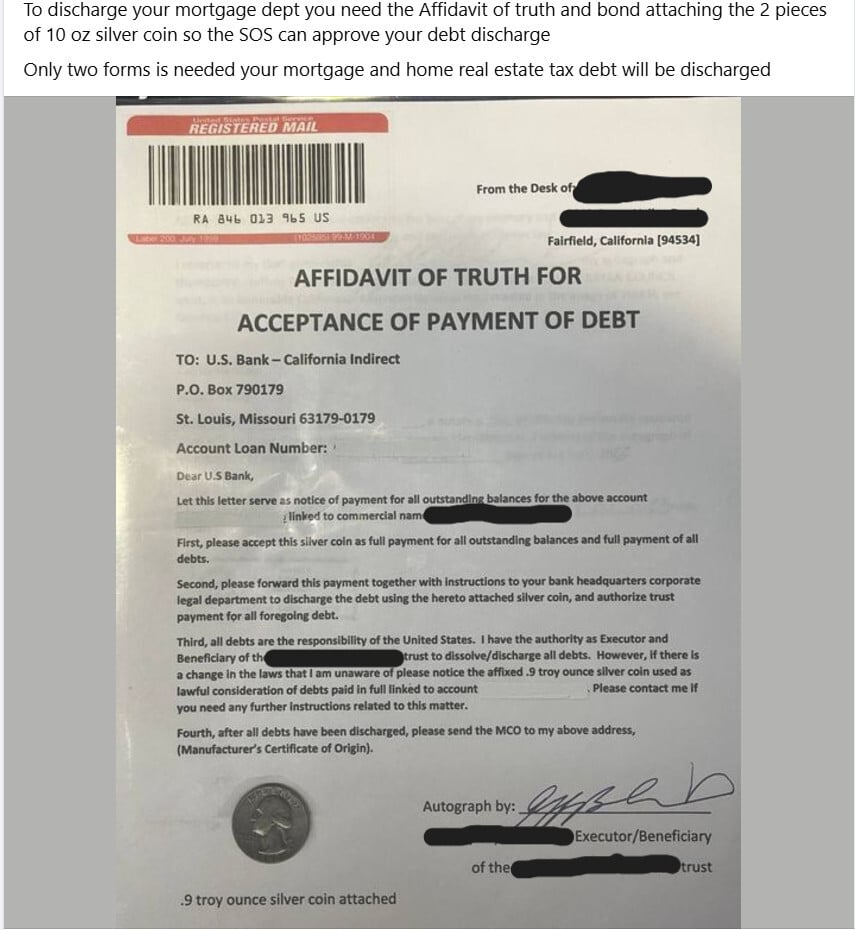this post was submitted on 24 Nov 2024
186 points (99.5% liked)
InsanePeopleFacebook
2700 readers
257 users here now
Screenshots of people being insane on Facebook. Please censor names/pics of end users in screenshots. Please follow the rules of lemmy.world
founded 1 year ago
MODERATORS
you are viewing a single comment's thread
view the rest of the comments
view the rest of the comments

Any company can take barter for their services if they wanted to.
They'd have to be pretty dumb to take a normal quarter as barter worth a whole mortgage instead of 0.25$ though.
Generally barter relies on the good being a similar value, whereas sovcit logic tries to force them to take terrible barter through the magical contract system america is beholden to, because obviously an all-encompassing contractual indentured servitude will have easy cheat codes to break out and get paid while you do.
They are hoping some employee of the lender pockets the coin that they offered for discharge of the debt, thereby accepting the "offer".
I don't think that's the goal but if it is at least make it a $20 bill or something. 25 cents isn't enough of a bribe to get seated at a restaurant more quickly, much less erase hundreds of thousands of dollars in debt.
The debt is in currency. The coin is not offered as a token of currency, but as a piece of silver. It's not being offered as a bribe.
"I'll give you this mystery box in exchange for discharge of all past debts I owed you". If you accept the mystery box, you cannot claim the debts. If the bank knowingly accepts and deposits the "silver coin" under these conditions, the debt would theoretically be discharged.
Of course, making an offer in this way is explicitly prohibited under postal regulations: The recipient is under no obligation to abide by the terms of such an offer, and is free to keep the coin without it constituting acceptance. The bank is under no obligation to return the coin.